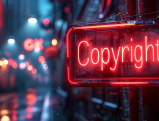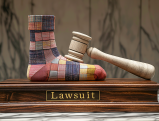by Jackson McNeill
March 11, 2015
The line between borrowing and stealing became blurrier this week when a federal jury ruled that Robin Thicke and Pharrell Williams’ song “Blurred Lines” impermissibly copied Marvin Gaye’s 1977 hit “Got to Give it Up.”
The eight-person jury returned a landmark $7.3 million dollar verdict in favor of Gaye’s family (who own Gaye’s copyrights), finding that specific sections of the 2013 pop anthem were similar enough to Gaye’s song to constitute copyright infringement.
The judgment forces Thicke and Williams to pay $4 million in copyright damages, plus profits attributable to infringement, amounting to $1.8 million for Thicke and $1.6 million for Williams.
REACTIONS
Reactions to the verdict were instantaneous. Music artists and industry professionals almost unanimously denounced the decision, arguing that the two songs were largely dissimilar and that the judgment will lead to countless, meritless lawsuits. Music fans and attorneys were also critical.
As one Washington Post blogger said, “[I]f vibes are now considered intellectual property, let us swiftly prepare for every idiom of popular music to go crashing into juridical oblivion.”
A New York Post column, meanwhile, called the decision absurd and worrying. And Larry Iser, an intellectual property attorney who has represented numerous musicians in copyright cases, stated, “Unfortunately, today’s jury verdict has blurred the lines between protectable elements of a musical composition and the unprotectable musical style or groove exemplified by Marvin Gaye…. Thicke and Williams’ homage to the feel of Marvin Gaye is not infringing.”
Others criticized the trial itself.
During trial, Jurors repeatedly heard the upbeat song “Blurred Lines” and watched clips of its music video, but did not hear Gaye’s actual recording of “Got to Give It Up.”
Instead, Gaye’s music was represented during the trial in a stripped-down form that lacked Gaye’s vocals or lyrics. This was done, purportedly, because Gaye owned the copyright to the song’s sheet music, but not to the recording itself.
Lacking this recording, Gaye’s attorneys used musicology experts to testify to similarities in the signature phrases, hooks, bass lines, lyrics, and themes between the two songs.
Critics, however, have wondered whether the jury could understand this expert testimony, and whether they would have reached the same result had they heard Gaye’s actual recording.
In any case, the jury was not convinced by Thicke’s testimony, which included an in-court piano ballad attempting to demonstrate the inherent similarities between many songs in popular music.
Disappointment in the verdict was also reiterated by Williams’ representative Amanda Silverman, who stated:
“While we respect the judicial process, we are extremely disappointed in the ruling made today, which sets a horrible precedent for music and creativity going forward. … We are reviewing the decision, considering our options and you will hear more from us soon about this matter.”
Meanwhile, Gaye’s family felt vindicated. Marvin Gaye’s daughter Nona Gaye cried as the verdict was being read.
“Right now, I feel free,” she said after the verdict. “Free from … Pharrell Williams and Robin Thicke’s chains and what they tried to keep on us and the lies that were told.”
In addition, some fans who felt that “Blurred Lines” lyrics were degrading or condescending felt like the verdict was, at the very least, apt retribution.
IMPLICATIONS
Karma aside, it remains to be seen how this verdict will affect the freedom of musical artists going forward.
In any case, the enormous verdict—which most legal experts found surprising—suggests that artists may be wise to settle copyright cases in the future rather than subjecting themselves to the whim of a jury.
As for the music industry history, only time will tell whether the judgment protects or inhibits creativity, or whether the line between stealing and borrowing will remain blurred.
Topics: Copyright










